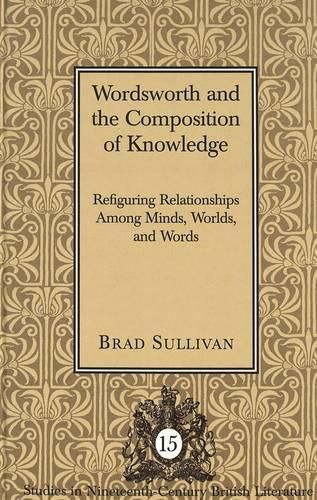Readings Newsletter
Become a Readings Member to make your shopping experience even easier.
Sign in or sign up for free!
You’re not far away from qualifying for FREE standard shipping within Australia
You’ve qualified for FREE standard shipping within Australia
The cart is loading…






To understand and value Wordsworth’s efforts to make poetry a tool of cultural intervention, critics must, like him, struggle with the Cartesian dualisms that dominate Western culture. Drawing on a number of interdisciplinary sources, including classical rhetoricians Isocrates and Quintilian, and twentieth-century scientists Gregory Bateson and Antonio Damasio, this study develops a coherent framework for understanding Wordsworth’s efforts to refigure the relationships that constitute knowing. Sullivan argues that Wordsworth sketched out an ecology of mind in which perception, feeling, thinking, and acting were related in a continuum of mental processes, and in which individual minds had a mutually shaping, integrative relationship with larger mind-like processes (particularly Nature). This study also shows how this ecology of mind can offer significant insight to learners in the twenty-first century.
$9.00 standard shipping within Australia
FREE standard shipping within Australia for orders over $100.00
Express & International shipping calculated at checkout
To understand and value Wordsworth’s efforts to make poetry a tool of cultural intervention, critics must, like him, struggle with the Cartesian dualisms that dominate Western culture. Drawing on a number of interdisciplinary sources, including classical rhetoricians Isocrates and Quintilian, and twentieth-century scientists Gregory Bateson and Antonio Damasio, this study develops a coherent framework for understanding Wordsworth’s efforts to refigure the relationships that constitute knowing. Sullivan argues that Wordsworth sketched out an ecology of mind in which perception, feeling, thinking, and acting were related in a continuum of mental processes, and in which individual minds had a mutually shaping, integrative relationship with larger mind-like processes (particularly Nature). This study also shows how this ecology of mind can offer significant insight to learners in the twenty-first century.